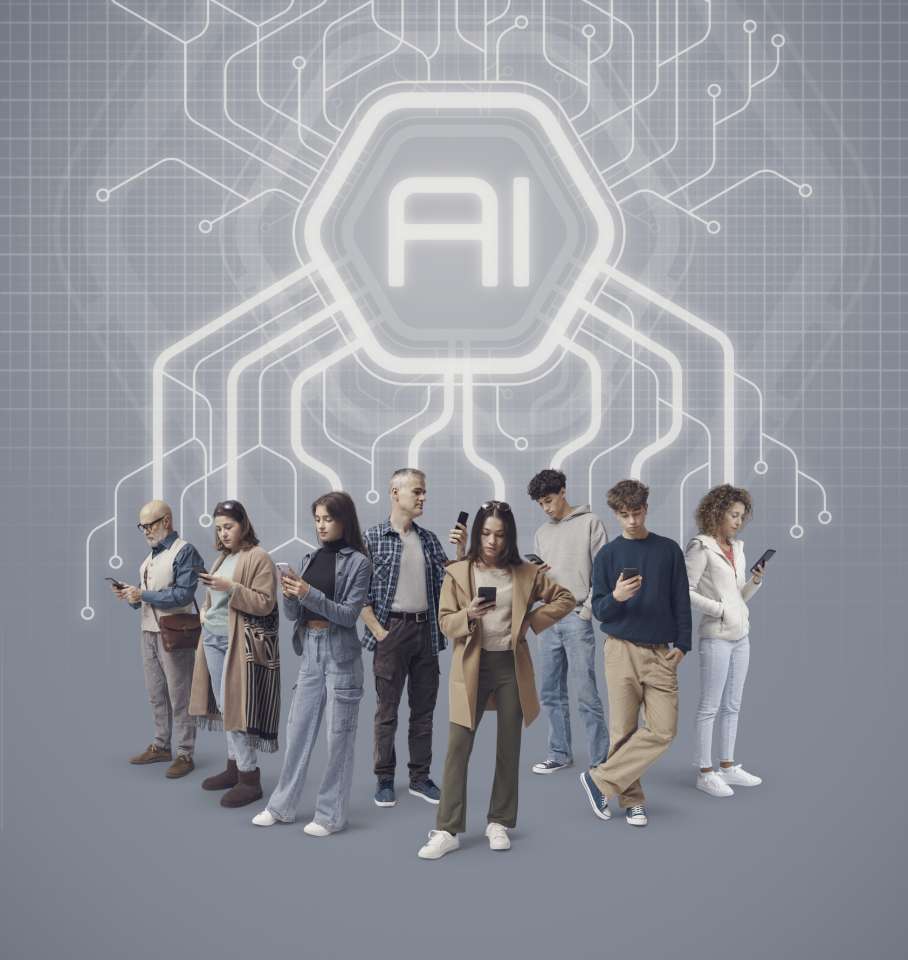It is close to impossible to keep AI out of your personal life, and a recent report by PEW research confirms that the majority of Americans admit they do not have much control over how AI is used in their lives. And they are correct – it is particularly challenging to stay hidden, especially for people living in the Western world.
Artificial Intelligence is virtually everywhere, and its automated programs constantly scour the internet and other sources for data. Nowadays, internet users leave numerous digital footprints that are useful for AI crawlers, which collect information about everything, including aspects of people’s personal lives. Data brokers do not help the situation, as people who tend to leave fewer digital footprints still end up on databases around the internet because of their presence on public and private lists. AI is being utilized in various fields, including but not limited to video surveillance, finance, healthcare, and transportation. Different generative artificial intelligence automated programs, which include chatbots, are trained on specific parts of data fed to them, which includes social media content and the public internet.
Key takeaways
- AI is deeply rooted in digital life, and it is close to impossible to avoid its influence on people’s personal lives
- Mainstream chatbots try to avoid personal information, but AI still has access to personal info that is accessible to organizations such as law enforcement and intelligence agencies
- Mainstream AI chatbots such as Grok, Meta AI, Gemini, and ChatGPT train on public data
- When trying to avoid AI, VPNs are helpful but come with limitations
How is AI being used, and why is it hard to keep it away?
AI tools are already being deployed almost everywhere, from dating websites to science research and entertainment, as well as in private and government law enforcement organizations. AI-powered assistants are helping people find better matches on platforms such as Facebook Dating. High-profile individuals, including Elon Musk, have predicted that soon we will have AI-generated games and movies, and AI will accelerate and generate new scientific discoveries.
Do chatbots train on info from data brokers such as White Pages?
White Pages is considered the largest online directory provider in the USA and has approximately 200 million user records. Publicly available AI-powered chatbots, such as those offered by OpenAI and Google, do not utilize White Pages data for training their large language models (LLMs). People’s private and sensitive information is excluded or anonymized. Users’ privacy is often protected to some extent by various legal frameworks, such as California’s CCPA and Europe’s GDPR. However, law-enforcement-specific offerings, such as SoundThinking’s CrimeTracer, don’t have such limitations. They provide a Google-like search engine for government agents. Everyone hopes that law enforcement does not misuse those powerful tools for personal or political gain.
Where do AI chatbots train?
Different types of chatbots focus on specific areas of the internet. For example, xAI’s Grok is heavily trained on data from the social media platform X. In contrast, Facebook’s Meta AI trains on information available in public posts on Facebook. It also uses other details shared with the app, such as location and public profile information. Even though Meta has confirmed on multiple occasions that it does not train on private messages, it admits to using public data. The company does not offer a direct opt-out feature for US users. This means users cannot prevent their public posts from training its AI. Google’s Gemini and OpenAI’s ChatGPT train on everything that includes the public internet.
Does VPN prevent AI from training on your online activity?
It does to some extent, but it is not entirely bulletproof. A VPN can block AI-powered behavioral profiling. It is particularly helpful as it encrypts internet traffic and masks a person’s IP address. However, VPN services also come with a range of limitations. They have almost no impact on account-level surveillance and tracking through local identifiers, such as cookies and browser fingerprinting. If a user is connected to the same social media profile or email account, the service provider still tracks their behaviour and possibly uses it for AI training. The same applies to cookies and other digital identifiers. These are used to build profiles for targeted advertising or personalized experiences.
Apart from using a VPN, which often comes with quality antivirus solutions, individuals who wish to limit AI’s training on them. They can also consider using privacy-focused browsers. They should also adjust their privacy settings on social media platforms and search engines. Taking a look at the privacy settings on apps, consoles, and even government and public services is also advisable. This includes requesting that data brokers and mortgage providers not share/publish/train AI on personal information. When it comes to privacy, the less you agree to share, the better.
